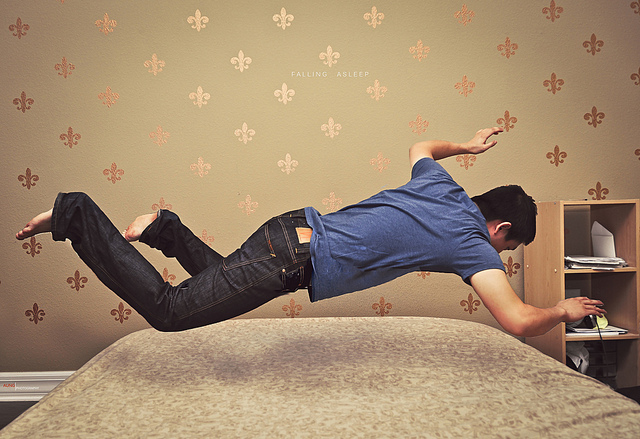Signs of Low Testosterone in Men
Every function in our body is controlled by messages sent by various electrical impulses and chemical messengers. These messengers are hormones. In men, the primary sex hormone is called testosterone and it begins its work long before the man is even born. During his development as a fetus, testosterone will play a role in how his genitals develop among other things. When he starts to mature this hormone will take on other roles as well.
The Importance of Testosterone
For most of a young boy’s life, testosterone is at a pretty steady but low level, working quietly in the background. Sometime around the ages of 9-14, testosterone levels surge to their highest levels and begins the process known as puberty. During this time the boy will start developing hair on his face and body and his voice may start changing. It is normal for some boys to get lower voices all at once while others may have the cracking, ever-changing voice that leaves them never knowing what is going to come out of their mouths. Boys will also start to add muscle mass during this time period.
Low testosterone levels at this point may cause boys to have a delay in puberty with a delay in the development of secondary sex characteristics as well.
The Signs of Low Testosterone
After puberty, testosterone levels taper slightly but should stay at roughly the same level for the rest of a man’s life. Science used to believe that there was a normal drop in levels in relation to aging but that has been found to be untrue.
Signs of low testosterone can include:
- Decreased energy and/or fatigue
- Decreased sex drive
- Decreased muscle mass
- Fewer spontaneous erections and difficulty achieving and maintaining purposeful erections
- Shrinking testicles
- Slowed facial hair growth
- Hair loss especially in the armpits and the pubic region
- Development of breast tissue, tenderness in the chest area
- Sleep apnea/Difficulty sleeping
Other symptoms that may not seem so obviously linked to testosterone can include daytime sleepiness, depression, and anemia. It may also cause an increase in body fat with a corresponding decrease in muscle mass and strength. Low testosterone can affect bone density as well.
The Best Way to Raise Testosterone Naturally
Thankfully, there are ways to raise testosterone that are natural and safe. One of the easiest is to improve the diet. A well-balanced diet with all three macronutrients (protein, carbohydrates, and fat) represented in the right amounts improves all of the functions of the body and improves the general health and well-being. It can also help improve mental and emotional health at the same time. Extreme diets especially those that severely restrict calories or limit or eliminate certain food groups can cause imbalances in the functions of the body including hormones.
Getting exercise especially weightlifting and high-intensity interval training also known as HIIT training is also key to increase testosterone. Getting plenty of sunlight or supplementing Vitamin D levels is necessary.
It is important to lower stress levels as well. Stress causes a release of cortisol. Cortisol, in turn, restricts the body from producing testosterone. If you are stressing about your lack of sex drive and other symptoms of low testosterone you could be setting yourself up for a vicious cycle which leaves you stressing more and producing even less testosterone.
Finally, getting enough sleep can be a vitally important part of returning to the right levels of testosterone. The old thinking was 8 hours was the right amount for everyone, but we now know that this is not true. Some men can function quite well on around 6 or 7 hours while others may need 9 hours to be rested.
Sleep is important for nearly every function in the body. This is the time that the body resets, rebuilds and renews. Muscles are built at night and during rest. You put in the time in the gym and then the body builds muscles from your efforts while you are sleeping. All of the other systems of the body also use this time to restore and reset. If you don’t sleep, then the process is interrupted, and the imbalances will continue.
Testing for Low Testosterone Levels
If you have any of the symptoms of low testosterone, your first action should be to call a doctor for some lab work. Once the values are back the doctor can discuss the findings with you including telling you if you are at risk for even lower testosterone and steps you can take to elevate it. If the numbers are too low, the doctor may prescribe medications and lifestyle changes.
Treatment for Low Testosterone Levels
After a provider has determined your levels are not optimal they can work with you to determine the best plan for you. Most plans will include the addition of testosterone cream, injectable testosterone or pellet form. Other hormones may need optimizations as well. Your plan should also include a proper diet to make sure you are getting what you need to optimize your levels. It will also help make sure you avoid hormone disruptors that can affect your progress.
Testosterone therapy can have a significant impact in those that have suboptimal levels. Among common benefits: an improved sense of well-being, improved libido, improved body composition, and better endurance and strength. Multiple studies have shown these benefits as well living longer.
At Modern Body Clinic we treat low testosterone and can discuss strategies and treatment plans. We start by performing a full health assessment, symptom review and targeted lab analysis. We then create a plan that works best for our patients. Read more information on about Hormone Replacement Therapy for low testosterone.



